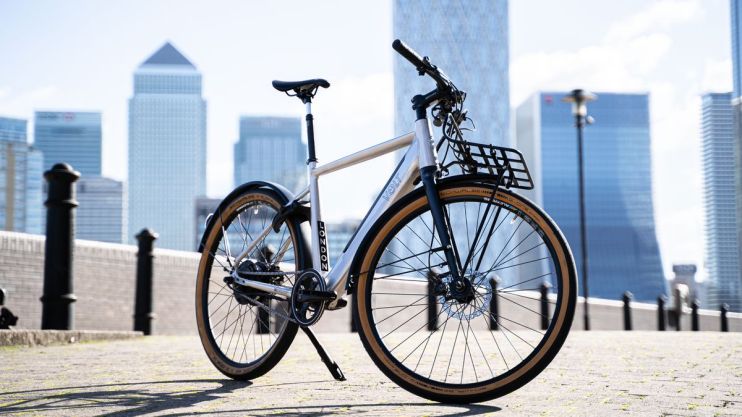
Sustainable partnerships

With increasing focus being placed on CSR and ESG policies, the push for firms to take action to help tackle the UK’s climate challenge has never been stronger. This moment of increased engagement presents businesses across the UK with a unique opportunity to form partnerships and collaborations to enhance processes, products, and services, all in the name of creating a more sustainable future.
No firm, government, or individual can singlehandedly hope to tackle the UK’s climate challenge, this is why we must consider engaging in strategic partnerships. Existing partnerships between major firms such as Ikea, Coca-Cola, and HP with groups like the WWF have been focused primarily on cleaning up supply chains by reducing waste and promoting sustainable practices. This is all good progress but, in looking to improve internal processes, firms have largely neglected to explore the impact that successful collaborations can have on driving further innovation.
Given sustainability partnerships are a vital element of any climate action, there needs to be careful consideration of how they are focused to ensure they maximise their impact. At VOLT we’ve advised both businesses and governing bodies on sustainable practices, below are some thoughts on what we think makes a successful collaboration.
Innovation
First and foremost, successful collaboration should seek to harness diversity of thought. If you’re bringing in people outside of your organisation, they’re going to think differently, which brings huge benefits. Firms need to look at one another not as distinct entities operating in isolation, but as future potential partners with whom they can form partnerships to enhance and develop products.
IBM’s work with universities and NGOs to develop blockchain based systems which enable consumers to reliably trace the origin of food products is a standout example of how firms can leverage their existing services and knowledge with new partners to deliver innovative products.
At VOLT we are continually building and seeking to make new partnerships with innovative firms and community networks to support the UK’s transition to sustainable transport. The ongoing close partnership between VOLT and GoRolloe, the producers of a wheel mounted air filter, is another example of how firms can build new partnerships that serve to enhance each other’s existing products. The collaboration enables us to draw upon the skills and expertise of others working in the industry to supplement our e-bikes with new technology to create a greater positive environmental impact.
Kristen Tapping, co-founder and director at GoRolloe commented “We’re proud of our partnership with VOLT to enhance their e-bikes and provide an even more eco-friendly and efficient sustainable transport solution. Together, VOLT and GoRolloe strive to make a positive impact on the environment, one ride at a time”.
Mass adoption
Again, in focusing their efforts to increase their climate credentials on processes and products throughout the business and its supply chains, firms can also be guilty of ignoring the practical benefits that the mass adoption of sustainable practices could have. If major public support can be developed for new products which reduce waste, or for alternative lifestyle choices that avoid excess waste, there would be a significant positive impact on the UK’s current work to tackle its climate challenges.
For instance, were the transition to sustainable transport solutions to keep pace with the ‘Gear Change’ vision outlined by the Department for Transport, then by 2030 half of all journeys in UK towns and cities would be done via a sustainable method. This vision proposes a radical overhaul of the UK’s existing transport culture and would have a transformative effect on our attempts to tackle emissions. To support transformative visions such as this, firms should seek to move beyond looking inward and instead look to form partnerships which support consumers and businesses in choosing sustainable options.
VOLT has also worked with groups such as the Zero Emissions Network, a London based network which helps individuals and businesses adopt sustainable transport solutions to ensure that consumers and businesses throughout the UK are aware of the benefits e-bikes can bring to them, and to society. This work, alongside our recent partnership with TFL to supply consumers switching from non-ULEZ compliant vehicles to e-bikes, is fundamentally focused on encouraging the mass adoption of sustainable transport.
Comprehensive partnerships
Partnerships must not only be bold in their vision for mass adoption and in seeking to harness innovation but should also consider every potential option and move beyond solely establishing partnerships with other firms. Climate change is a global issue, probably the largest humanity has ever faced, so to tackle it we should work with partners in every aspect of society. What this means is forming strong partnerships with individuals, NGOs, governing bodies, and any other parties outside of a firm’s immediate circle.
VOLT has sought to supplement our existing partnerships with firms like Deliveroo, through collaborations with governing bodies such as the TFL and NHS Trusts to promote increased awareness and further uptake of sustainable transport solutions.
It is clear then, that to ensure the biggest impact, the existing consensus on how to develop sustainability focused partnerships must move beyond looking inward and instead build collaborations which foster innovation, appeal to mass audiences, and are not restricted to working with obvious business partners.
If you want to learn more about how VOLT can provide sustainable transport solutions which enable your business to join the mass adoption of greener travel methods, you can visit our website www.voltbikes.co.uk/volt-fleet.